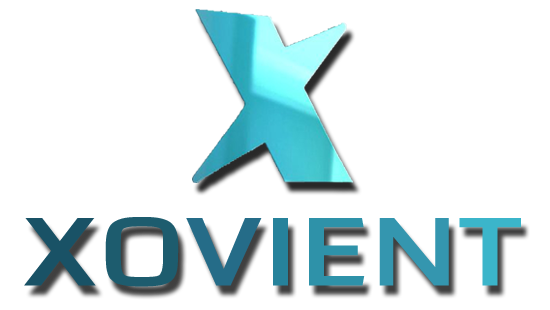In the ever-evolving landscape of technology, the emergence of Web 3.0 represents a significant paradigm shift towards a decentralized, interconnected web experience. With the proliferation of blockchain technology, smart contracts, and decentralized applications (DApps), developers are presented with exciting opportunities to build innovative solutions that prioritize security, transparency, and user empowerment. Building Web 3.0 applications requires a deep understanding of decentralized technologies, as well as proficiency in relevant tools and frameworks. By leveraging platforms like Ethereum, tools like IPFS and Solidity, and frameworks like Truffle and Embark, developers can create innovative solutions that redefine the future of the internet. By adhering to best practices for security, user experience, and scalability, developers can ensure that their Web 3.0 applications are robust, user-friendly, and poised for widespread adoption in the decentralized web landscape. In this blog post, we’ll explore the tools, frameworks, and best practices for developers venturing into the realm of Web 3.0 application development.
Understanding Web 3.0:
Web 3.0 represents a vision of the internet where users have greater control over their data and interactions. Unlike its predecessors, Web 3.0 leverages decentralized technologies such as blockchain to enable peer-to-peer transactions, secure data storage, and autonomous smart contracts. This decentralized approach not only enhances security but also promotes trust and transparency in online interactions.
Tools for Web 3.0 Development:
- Ethereum: Ethereum is a leading blockchain platform that enables developers to build and deploy decentralized applications (DApps) using smart contracts. With its robust ecosystem and developer-friendly tools such as Truffle and Remix, Ethereum has become a popular choice for Web 3.0 development.
- IPFS (InterPlanetary File System): IPFS is a protocol designed to create a distributed method of storing and sharing hypermedia in a peer-to-peer network. It allows developers to build applications with decentralized storage, ensuring data integrity and resilience against censorship.
- Solidity: Solidity is a programming language specifically designed for writing smart contracts on the Ethereum blockchain. It offers features such as inheritance, libraries, and dynamic types, making it easier for developers to create secure and efficient smart contracts.
- Web3.js: Web3.js is a JavaScript library that provides an interface for interacting with the Ethereum blockchain. It enables developers to build front-end applications that communicate with smart contracts and interact with the blockchain in a seamless manner.
Frameworks for Web 3.0 Development:
- Embark: Embark is a framework for building and deploying decentralized applications on the Ethereum blockchain. It provides tools for smart contract development, testing, and deployment, as well as a development server for building front-end applications.
- Truffle: Truffle is a popular development framework for Ethereum that offers a suite of tools for smart contract compilation, testing, and deployment. It also includes built-in support for Ethereum development environments like Ganache, allowing developers to simulate blockchain networks locally.
- Dapp.js: Dapp.js is a JavaScript framework for building decentralized applications that run on the Ethereum blockchain. It provides utilities for interacting with smart contracts, managing accounts, and handling transactions, simplifying the development process for Ethereum DApps.
Best Practices for Web 3.0 Development:
- Security: Security should be a top priority when building Web 3.0 applications. Developers should follow best practices for smart contract development, such as avoiding reentrancy vulnerabilities, using secure libraries, and implementing proper access controls.
- User Experience (UX): User experience plays a crucial role in the adoption of Web 3.0 applications. Developers should focus on creating intuitive interfaces, providing clear instructions for interacting with smart contracts, and ensuring seamless integration with blockchain wallets and browsers.
- Scalability: Scalability is a key challenge in Web 3.0 development, especially considering the limitations of current blockchain networks. Developers should explore solutions such as layer 2 scaling solutions, sidechains, and sharding to improve the scalability of their applications.
- Community Engagement: Engaging with the Web 3.0 community can provide valuable insights, feedback, and collaboration opportunities for developers. Participating in forums, attending conferences, and contributing to open-source projects can help developers stay informed and connected within the ecosystem.
Ending: Xovient, an IT and software company, is well-equipped to assist developers in building Web 3.0 applications. With expertise in blockchain development, smart contract development, and decentralized application architecture, Xovient offers a range of services to support developers throughout the development lifecycle. From project ideation to architecture design, Xovient offers strategic guidance and technical expertise to ensure project success. We offers custom development services for building Web 3.0 applications. Whether it’s developing smart contracts, designing decentralized architectures, or integrating blockchain functionality into existing applications, Xovient’s team of experienced developers can deliver tailored solutions to meet project requirements. Xovient offers training and education programs to empower developers with the knowledge and skills needed to excel in Web 3.0 development. Through workshops, seminars, and online courses, we equips developers with the tools and resources to stay ahead in this rapidly evolving field.
In conclusion, building Web 3.0 applications requires a deep understanding of blockchain technology, decentralized architectures, and best practices for development. By leveraging the right tools, frameworks, and practices, developers can create innovative and secure applications that drive the adoption of Web 3.0. With the support of companies like Xovient, developers can accelerate their journey into the world of Web 3.0 and unlock the full potential of decentralized technologies.

